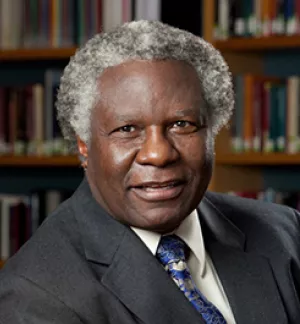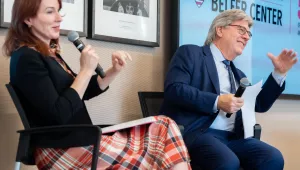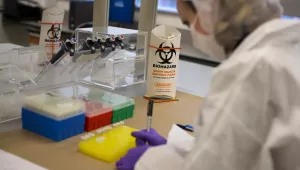In a long-awaited decision, the World Trade Organisation has ruled that the European Union's moratorium on approving genetically modified foods imposed in 1998 violated international trade rules.
Supporters of biotechnology have argued that the foods are safe to grow and consume. But critics have been demanding that new products must be shown to be safe before they are commercialised. The focus on health and environmental safety, however, often hides the main source of controversy. The driving force behind the dispute is technological competition between the two trading powers. The focus on safety is largely a smokescreen used to conceal concerns about Europe's loss of competitiveness in biotechnology.
We live in a new world marked by rapid technological innovation and global integration. Europe and the US should learn to manage new technologies collectively, not to suppress them. Failure to do so will shift technological leadership to other regions, such as China, that have made significant strides in using new technologies for economic growth. Attempts to stall the diffusion of biotechnology are not the first examples of safety arguments being invoked by promoters of incumbent products. Take coffee: in the 1500s Catholic bishops demonised coffee as "Satan's drink" and urged a ban. It was competing with wine. In its defence, Pope Clement VIII proclaimed: "Why, this 'Satan's drink' is so delicious it would be a pity to let the infidels have exclusive use of it. We shall fool Satan by baptising it and making it a truly Christian beverage." More than a century later, coffee was pitted against tea as the incumbent English drink. To defeat the competition, King Charles II decreed the banning of coffeehouses in 1675 only to revoke the decision two days before it came into effect.
In Germany, coffee was outlawed or its sale severely restricted for economic reasons. "It is disgusting to notice the increase in the quantity of coffee used by my subjects, and the like amount of money that goes out of the country in consequence. My people must drink beer. His Majesty was brought up on beer, and so were his ancestors," declared Frederick the Great in 1777.
Historical cases of technological competition were limited in their reach. Today's global economy demands that governments find ways to ensure that the benefits of new technologies are widely shared. Judicial rulings will safeguard the integrity of international trading rules. But they will not guarantee consumer enthusiasm for products that threaten their settled ways.
The US has its celebrated cases of opposition to new technologies. Margarine, a French invention, was subjected to decades of slander by the dairy industry. The Horse Association of America launched a two-decade battle against the internal combustion engine. Similarly, decades of opposition to mechanical refrigeration waned in the face of technical improvements and market expansion.
Like in earlier cases, the WTO ruling has far-reaching implications for governments, business and the international community. First, promoting wider access to new technologies builds trust in the global trading system. Technological monopoly by a handful of nations can only breed disenchantment with globalisation. It is also for this reason that many developing countries remain wary of biotechnology. They are more concerned about exclusion than they are about safety. In other words, they perceive exclusion as a more serious risk than the adoption of the biotechnology. When given a chance, these countries have shown enthusiasm for adoption as in Argentina, Brazil and China.
Second, governments need to work harder to harmonise their regulatory practices. The traditional practice of projecting national laws globally must be replaced by greater efforts to agree on international standards.
But the debate about the risks of GM foods involves perceived rather than real risks. This is largely a political rather than a scientific issue. The business community has to improve its management of public perceptions of the risks of new technologies. The biotechnology industry can broaden its support by working on products for unmet needs. There is considerable scope for extending biotechnology applications to new fields such as environmental management and biofuels production.
The ruling also raises concerns about the impact of transatlantic relations on international trade. It is time for the US and Europe to provide new leadership on how to maximise the benefits of new technologies and minimise their risks. If they do not, leadership will shift to new players in other regions.
The writer is professor of international development at Harvard University's Kennedy School of Government
Juma, Calestous. “'Satan's Drink' and a Sorry History of Global Food Fights.” Financial Times, February 9, 2006




